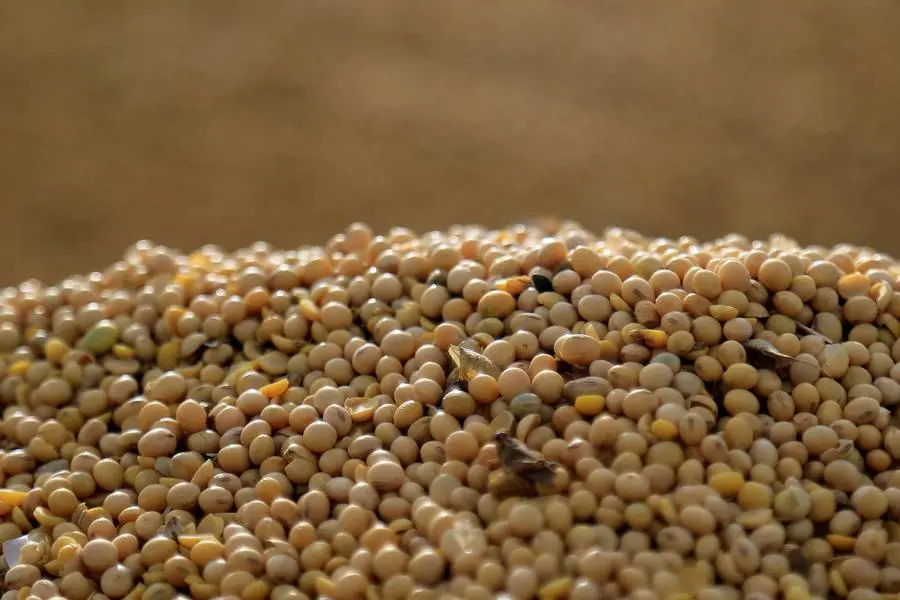PHOTO
SINGAPORE: Chicago soybean futures slid on Wednesday for the first time in three sessions, as an outlook for much-needed rains in Brazil eased worries about dry weather delaying planting in the world's biggest exporter of the oilseed.
Wheat and corn prices fell.
"There is some improvement expected in Brazil as far as weather is concerned," said one oilseed trader in Singapore. "Overall the supply and demand fundamentals are bearish for the soybean market."
The most-active soybean contract on the Chicago Board of Trade (CBOT) was down 0.3% at $10.39-1/2 a bushel, as of 0247 GMT, having risen on Tuesday to $10.58, its highest level since July 25.
Wheat lost 0.6% to $5.74-3/4 a bushel and corn gave up 0.4% to $4.10-1/4 a bushel.
The soybean market rallied on Tuesday after the central bank of China, the world's top soybean buyer, announced broad monetary stimulus and property market support measures to revive its economy.
However, prices are coming under pressure as forecast models predict much-needed rains in Brazil next week that could bolster soybean planting and crop prospects.
The U.S. corn and soybean harvest is progressing, although rains crossed the central Midwest on Tuesday, interrupting fieldwork in some areas.
In a weekly report released after market closed on Monday, the USDA pegged the soybean harvest as 13% complete and the corn harvest as 14% done, both ahead of their respective five-year averages.
In Argentina, grains and oilseed output could reach up to 143 million metric tons in the 2024/25 season under normal weather conditions, which could boost exports to their highest volume in four years, the Rosario grains exchange said on Tuesday.
Agricultural markets are awaiting quarterly U.S. grain stocks report on Monday by the U.S. Department of Agriculture.
The average estimate for Sept. 1 corn stocks, at 1.844 billion bushels, would represent a four-year high, up 35.6% from a year earlier. For soybeans, the average estimate of 351 million bushels would also be a four-year high, up 32.9% from the prior year.
Workers at the six main grain terminals located in the Canadian port of Vancouver went on strike on Tuesday, a move that could disrupt exports of canola and other crops, government and industry officials said.
Commodity funds were net buyers of CBOT soybean and soyoil futures contracts on Tuesday and net sellers of corn, wheat and soymeal futures, traders said.
(Reporting by Naveen Thukral; Editing by Rashmi Aich and Sherry Jacob-Phillips)





















